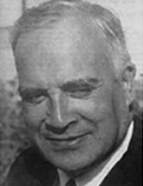

A scientifically proficient historian and a man of integrity, TSS humbly accepted those criticisms and acknowledged that he endeavoured to correct the shortcomings pointed out by continuing to debate and deepen the same issues in later articles, such as: "As cartas de foral. Constituição dos concelhos rurais e urbanos" [Foral charters. Constitution of rural and urban municipalities] (1937), "Henri Pirenne e o problema das origens das instituições municipais da Reconquista" [Henri Pirenne and the problem of the origins of the municipal institutions of the Reconquest] (1939), "Notas para o estudo das instituições municipais da Reconquista" [Notes for the study of municipal institutions in the Reconquest] (1941 and 1943), "A organização municipal do Porto no tempo do Infante D. Henrique" [The municipal organisation of Porto at the time of Prince Henry the Navigator] (1960), "A organização municipal do Porto dos séculos XII a XIV" [Porto's municipal organisation from the 12th to the 14th centuries] (1962). His article on municipalities in the Dicionário de História de Portugal (1971), in some way summarises the final maturing of his position on the subject. On the topic of the settlement of Portuguese territory in the Christian Reconquest, TSS, who initially tried to follow the "Romanists" Herculano and Gama Barros, came to adopt the "Germanist" positions of Claudio Sánchez Albornoz (whom, as we have discussed, he had met in Madrid in the early 1930s and with whom he had become a disciple and friend), including the defence of the depopulation as a strategic desert that opposed Christians and Muslims. This position soon led him into controversy with his colleague at FLUC, Avelino de Jesus da Costa. In his doctoral thesis, O Bispo D. Pedro e a restauração da Sé de Braga [Bishop D. Pedro and the restoration of the Cathedral of Braga] (1959), using previously unpublished documentation, he demonstrated how untenable this position was. The differences between the two professors and medievalist historians from the same "Coimbra school" were evident in their speeches at the II Congress of Guimarães in 1981 and in articles in the RPH of the same year, as well as lively defences in their respective classes or in exam juries in which they both took part. Arguing and defending each other's positions, the controversy remained a cordial and constructive debate, never straying beyond the scientific realm. It set an example of healthy disagreement at the historiographical level, demonstrating the possibility of divergent interpretations and highlighting the challenges of objectivity and the pursuit of truth in the social and human sciences. As for the third topic, the formation of Portugal, which TSS had been working on since 1937 ("International politics — the constitution of the County and Kingdom of Portugal and its diplomatic relations with the Roman Curia and Castile"), he would continue to explore it until his death (the last book on the subject was published posthumously).
This work is financed by national funds through FCT - Foundation for Science and Technology, I.P, in the scope of the projects UIDB/04311/2020 and UIDP/04311/2020.
